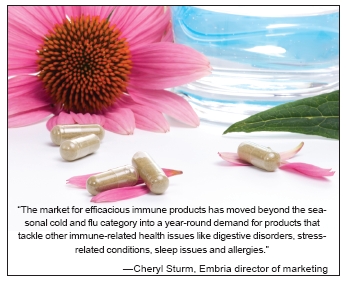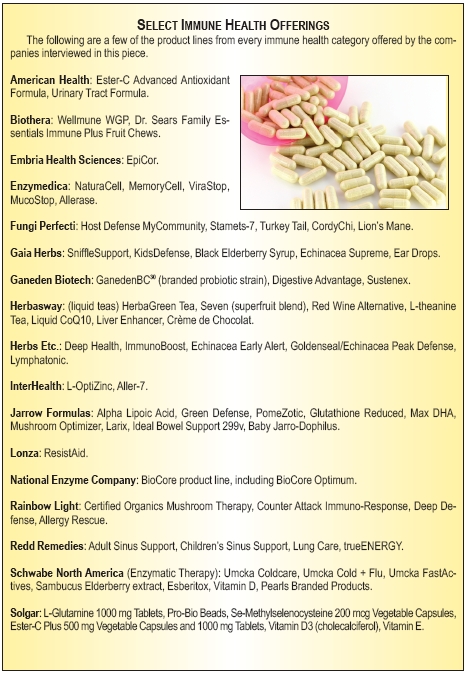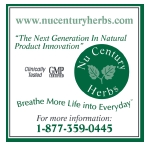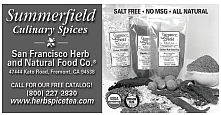Invisible dangers lurk around every corner: on every doorknob, in each innocent handshake. Bacteria and pathogens are an inescapable fact of life. Sometimes, though, the enemy comes from within. Sometimes, to avoid the pitfalls of illness and disease, we must simply seek a better balance. The health of our immune systems is in large part predicated on the presence of key nutrients and helpful bacteria in ideal proportions within our digestive tracts as well as our blood streams. To protect ourselves from the threat of invasion from the outside, and to find that happy medium within, there are a multitude of natural solutions to choose from, and the immune health frontier is expanding faster than ever before.
First, we’ll take a tour of some of the immune system’s key functions led by industry experts. Then, it’s on to an in-depth guide for what makes immunity work at every stage of human life. Along the way, we’ll learn more about the immune health supplements and nutrients your customers have been asking about.
Is it on the Label?
There is growing consensus throughout the natural products industry that immune health benefits are a must-have for consumers. This documented, researched desire among consumers for products that help them stay healthy has prompted supplement manufacturers to safely and effectively include ingredients that will bolster our natural defenses.
According to Richard Mueller, president and CEO of Eagan, MN-based Biothera, “Research shows that consumers are interested in these products and manufacturers are responding with innovation. As marketers, we strive to help manufacturers realize the size of the immune health opportunity and educate them about how to select the best ingredients.” The bottom line is that more and more shoppers are looking for “immune benefits” as they browse product labels. It can be the deciding factor in which natural supplement they deem the best health value for their money.
Mueller highlights key points for both distributors and retailers to keep in mind when it comes to immune health:
• Are the ingredients used generally recognized as safe (GRAS) by the U.S. Food and Drug Administration?
• How much research is there to back up the product’s health claims, and how good is the research?
• Is it clear how the ingredient works at a molecular level, so that dosage, stability and shelf life can be pinned down?
• Does the product present innovative health claims?
These questions can be used to decide in which products to invest and what to promote, and should be considered in decisions over which products should stock your shelves.
There are two distinct approaches taken by immune health product makers, and both should be accounted for in a store’s inventory. Some products claim to interact directly with immune function at the cellular level, while others aim to provide the broad-based nutritional support thought necessary for strong immune response. “As consumers become more aware of the link between diet and immune function, they seek natural ingredients to further support their diet,” says Bryan Rodriguez, technical marketing and scientific affairs manager for Lonza, Allendale, NJ.
Now, let’s take a look at the primary functions of the immune system, and how those functions are supported nutritionally.
An Apple a Day…
 This famous adage may seem outdated. Indeed, it does to seem to originate from an earlier time when fruits and vegetables were all we had at our disposal in the fight against ill health. Today, we have a substantially larger arsenal of ever more precise weapons, able to target areas of need by providing key nutrients to the parts of the body that need them most.
This famous adage may seem outdated. Indeed, it does to seem to originate from an earlier time when fruits and vegetables were all we had at our disposal in the fight against ill health. Today, we have a substantially larger arsenal of ever more precise weapons, able to target areas of need by providing key nutrients to the parts of the body that need them most.
The human immune system is among the most evolved of any life-form, in that it has three layers. Surface barriers and mechanisms, like skin, mucus, coughing and tearing, provide the initial defense against harmful invaders. After that, our innate immune system provides a generalized defense against foreign bodies, but this only goes so far. It has no pathogenspecific way of defending the body from harm. This is where the adaptive immune system comes in: a versatile, highly organized team of players that includes dozens of different types of cells and processes.
For all of this to work and flourish, we must, simply put, remain healthy. Broad nutritional support is necessary for wellfunctioning immunity. This is why malnourishment, especially when severe, often leads to illnesses the body would have otherwise kept at bay. People are becoming more aware of the connection. According to Jo Kirst, educational communications specialist with Enzymatic Therapy, Inc., Green Bay, WI, “Consumers increasingly are taking their health into their own hands, and looking to proactively support their immune systems to keep them strong. That means immune-boosting supplements and natural OTC products are increasing in popularity.”
So, as the market for immune products expands, so will scientific research into the ways we can help our immune systems keep humming along. Some products will aim to benefit the immune system directly, while others give it a solid foundation. As we will see, both approaches are essential, and both are teeming with novel solutions. Ahead is a look at a few specific supplements and how they function, immunologically speaking. See the “Immunity 101” sidebar for more information about how some supplements interact with the core functions of the immune system.
Probiotics. When it comes to immunity, experts agree it all starts with our guts. Patti Kim, N.D., MSOM, educator with Jarrow Formulas, Los Angeles, CA, says, “The intestinal tract is not just for absorbing nutrients from food, but it is truly the body’s first opportunity for defense. Therefore, 70% of our immune system is based in our gut.”
Jarrow Formulas, Los Angeles, CA, says, “The intestinal tract is not just for absorbing nutrients from food, but it is truly the body’s first opportunity for defense. Therefore, 70% of our immune system is based in our gut.”
The lining of the digestive tract is home to a type of bacteria we definitely want around, namely probiotics. The idea of supplementation with probiotics has spawned many a product line in recent years, and it’s easy to see why. They perform various beneficial tasks including balancing pH levels, providing energy for intestinal activity at the cellular level, promoting the synthesis of essential vitamins and producing metabolites that, in turn, remove harmful microbes and bacteria from the body (1).
Probiotics are lost through bodily waste, and are normally replenished though dietary intake. Where the nutrition in our diet falls short, as it often does, supplementation with probiotics can bridge the gap. But supplementing with the sole aim of boosting nutrient or probiotic levels isn’t the only approach, according to Larry Robinson, vice president of scientific affairs for Embria Health Sciences, Ankeny, IA.
“It is now clear that the immune system shouldn’t always be boosted, it needs to be balanced. Having an over- or under-stimulated immune system can be an invitation for illness and irritation. The ideal place for the immune system to be is at the balanced, resting stage, where it can best react to the body’s signals,” Robinson says. He cites a 2010 study in Immunological Investigations, which considered the role of commensal bacteria in modifying mucus-based immunological responses. A relationship is commensal between two organisms when one benefits and the other is unaffected. This is what researchers believe occurs between probiotic bacteria and humans. We get the perks, and they aren’t any worse off for their efforts. This study examined data indicating that gut microorganisms interact with enteric (gastrointest inal ) neurons to modulate the immune system beneficially (2).
More research is needed to determine exactly how probiotics might be interacting with key immune system components like epithelial cells, dendritic cells and T-regulatory cells. Bacteria may be transducing signals to these cells that have the effect of strengthening our immune responses.
Antioxidants. There is general agreement that the most important function of bodily nutrients, in terms of supporting immunity, is their role as antioxidants. Free radicals build up in our tissues, and the more antioxidant activity we have to scavenge them away, the less risk we run of detrimental health effects, including to our immune system. Free radicals have been implicated in damaging certain types of immune cells and disrupting overall communication in the immune system (3).
It is important to understand that free radicals, also called reactive oxygen species (ROS) are normal, but that their uninhibited build-up is what spells health problems. Says Dave Barton, director of education for Enzymedica, Port Charlotte, FL, “Free radicals are produced as the normal byproducts of metabolism, detoxification, digestion and respiration. They are formed following exposure to pollutants, cigarette smoke, stress, ultraviolet light and Xrays. This cellular damage can have a profound effect on our health, immunity, and overall wellbeing.”
 Nena Dockery, scientific and regulatory affairs manager for National Enzyme Company, Forsyth, MO, gets more speci f ic about what can go wrong. “When ROS build up they can inhibit the action of important enzymes, fatty acids and proteins, and ultimately cause cell death,” she says. Some nutrients possess antioxidant properties themselves, while other biological elements, such as a chemical base called xanthine, are necessary to create the enzymes that alleviate oxidative stress.
Nena Dockery, scientific and regulatory affairs manager for National Enzyme Company, Forsyth, MO, gets more speci f ic about what can go wrong. “When ROS build up they can inhibit the action of important enzymes, fatty acids and proteins, and ultimately cause cell death,” she says. Some nutrients possess antioxidant properties themselves, while other biological elements, such as a chemical base called xanthine, are necessary to create the enzymes that alleviate oxidative stress.
We therefore need to be well supplied with nutrients and antioxidants of all stripes to win the battle against free radicals. Experts suggest a laundry list of nutrients to fill this need. “Part of a complex process controlled by the liver, antioxidants, like vitamin C and nutrients like glutathione, are able to neutralize the free radical cascade, thereby preventing cellular damage,” says Barton. Other antioxidants include superoxide dismutase (SOD), catalase, vitamin E and selenium.
Enzymes. When we talk about digestive enzymes, we are, of course, still engrossed in the guts. Supplementing with these products will do more than just help break down food, which indirectly aids immune function. Dockery says, “NEC has formulated digestive enzyme products to help guarantee that the nutrients consumed as part of a healthy diet are broken down and available for absorption and use by the body. By ensuring that this process occurs appropriately, not only does the immune system benefit from the nutrients, but it is also less stressed by the presence of undigested food that can trigger an inappropriate immune response.” Efficient digestion also requires less bodily energy, leaving more resources for the immune system to do its job (7).
Non-digestive enzymes play a role in the functioning of the immune system as well, in some cases more directly than  digestive enzymes. A complementary system of proteins, which are enzymes, aids antibodies in the destruction of harmful bacteria. Complementary molecules encounter antibody–antigen complexes in the blood and become activated by enzymes. The complementary molecules then go about a process of puncturing pathogenic cells with their cylinder-like shape, whi ch des t roys the target pathogens (7).
digestive enzymes. A complementary system of proteins, which are enzymes, aids antibodies in the destruction of harmful bacteria. Complementary molecules encounter antibody–antigen complexes in the blood and become activated by enzymes. The complementary molecules then go about a process of puncturing pathogenic cells with their cylinder-like shape, whi ch des t roys the target pathogens (7).
From the Cradle to Old Age
It is common to equate the beginnings of our lives with their ends, infancy with old age. We are in many important ways our most vulnerable at these stages. This is when we must protect ourselves and our immune systems most vigilantly, or be protected when we can’t do it for ourselves. Of course, the time in between, the majority of our lives, we may also have a keen interest in staying as healthy as possible.
Indeed, strong immune responsiveness is becoming a lifelong, year-round concern for many people. “The market for efficacious immune products has moved beyond the seasonal cold and flu category into a year-round demand for products that tackle other immunerelated health issues like digestive disorders, stress-related conditions, sleep issues and allergies,” says Cheryl Sturm, Embria’s director of marketing.
Infancy. Many parents are interested in starting their children off with a healthy immune system while they’re young.  It bears mention at the start of this discussion that some companies play it safe in terms of recommending their specific products for children. For instance, Paul Stamets, director of research and founder of Fungi Perfecti, Olympia, WA, indicates that his company does not recommend its mushroom supplements to young children to be extra cautious. When it comes to different types of supplements, however, others emphasize the importance of protecting the f r a i l ty of youth through supplementation.
It bears mention at the start of this discussion that some companies play it safe in terms of recommending their specific products for children. For instance, Paul Stamets, director of research and founder of Fungi Perfecti, Olympia, WA, indicates that his company does not recommend its mushroom supplements to young children to be extra cautious. When it comes to different types of supplements, however, others emphasize the importance of protecting the f r a i l ty of youth through supplementation.
For baseline protection, and recovery from illness in early life, Kim suggests a variety of options: “Probiotics, vitamins C and D, antioxidants in the form of dark berries and greens, as well as antimicrobial botanicals like larix, elderberry, and Oregon grape once symptoms do occur.”
Jonathan Selzer, technical director with HerbaSway Laboratories, Wallingford, CT, recommends probiotic supplements, in particular, which may work by making the infant’s body ready to defend itself. About their particular probiotic strain, Mike Bush, vice president of business development with Ganeden Biotech, Mayfield Heights, OH, says, “Much of the immune response appears to be coming from the body’s recognition of the strain’s ‘fingerprint’, and subsequent preparation for an immune challenge. When no challenge occurs, the body simply remains in a state of preparedness should an actual bacterial or viral challenge present itself.”
Dockery is enthusiastic about the prospect of omega-3 fatty acid (DHA and EPA) supplementation, both pre- and  post-natal. “Research studies continue to confirm that infant immune health is a reflection of the diet of the mother. For example, the infants of mothers who consume more DHA and EPA in their diets or through supplementation are less likely to develop allergies. This apparent support extends to DHA supplementation of infant formula, as this may contribute to decreased incidence of respiratory infections,” she says. Consumers should always consult their doctor s be fore impl ement ing any supplement regimen for a young child.
post-natal. “Research studies continue to confirm that infant immune health is a reflection of the diet of the mother. For example, the infants of mothers who consume more DHA and EPA in their diets or through supplementation are less likely to develop allergies. This apparent support extends to DHA supplementation of infant formula, as this may contribute to decreased incidence of respiratory infections,” she says. Consumers should always consult their doctor s be fore impl ement ing any supplement regimen for a young child.
Childhood. Most kids are rambunctious, curious and unhygienic by nature. They are, therefore, likely to interact with their environment in ways that will see them become ill or hurt. It is important to remember that the immune system not only combats sickness, but is responsible for aiding the body in recovery from injury and strenuous exercise. So for kids that play hard and don’t wash their hands, immune system supplementation may keep them up and running.
Children’s immune health supplements will often have attractive, brightly colored, kid-friendly packaging, but which ones are most effective? Remember that taste may be even more of a factor when it comes to children’s supplements. There are a number of common categories, including cough suppressants, allergy and cold symptom relief, and baseline nutritional support. Keri Marshall, N.D., medical director for Gaia Herbs, Brevard, NC, recommends her company’s line of echinacea supplements for kids. “All of the products have been formulated with a children’s palate in mind and are great tasting. These liquid extracts are in a sweet-tasting glycerin base and can be taken alone or mixed with juice,” she says. Another product category to be aware of, Marshall says, are children’s ear drops for relieving seasonal immune reactions in the form of ear aches.
During allergy season, children are often most troubled by their sinuses. Dan Chapman, Founder & CEO of Redd Remedies, Bradley, IL, talks about his company’s kids’ products. “Vitamin C and quercetin are included to impact allergic reactions and provide support against infection that may cause sinus troubles,” he says. Chapman goes on to explain how this ingredient works, saying, “Quercetin acts as an anti-inflammatory by inhibiting certain inflammatory mediators, such as leukotrienes, which is important to respiratory health. Quercetin also inhibits histamine release by mast cells and basophils, which makes it a good choice when dealing with allergies.”
 A set of studies in Therapeutic Advances in Respiratory Disease highlights a proprietary pro biotic from Institut -Rosel l Lallemand that shows promise for preventing respiratory infections in children , which are common during winter, by modulating immune responses (4). In the study group, a correlation was found between supplementation with the probiotic strain and kids missing less days of school.
A set of studies in Therapeutic Advances in Respiratory Disease highlights a proprietary pro biotic from Institut -Rosel l Lallemand that shows promise for preventing respiratory infections in children , which are common during winter, by modulating immune responses (4). In the study group, a correlation was found between supplementation with the probiotic strain and kids missing less days of school.
Something to avoid when considering immune health, especially with children, is overstimulation of the immune system. “Products that benefit the immune system are those that can effectively modulate the expected response to individual situations, rather than those that indiscriminately up-regulate the ent ire system,” explains Lonza’s Rodriguez. Inappropriate or excessive supplementation, experts say, can result in sub-optimal immune responses.
Adulthood. By the time we enter the adult stage of life, our adaptive immune systems have learned to fend off most major pathogens, whether through natural exposure or vaccination. If we lead healthy lifestyles and have decent genetics, our immune systems should be in a relatively strong responsive state. So what is there to worry about? Adulthood is not the time to kick back and forget about the concept of illness.
Obviously, we still get sick from time to time, and cutting down on the frequency of illness is a high priority for everyone. Allergies affect millions of Americans every year, so there is plenty of work to do in staving off symptoms for those affected. And during adulthood, not when age-related illness hits down the road, is the time to fortify defenses for the golden years ahead.
One expert gets medieval as he explains in detail how the average adult might view their personal immune health. Daniel Gagnon, medical herbalist and owner of Herbs, Etc., draws an analogy between bodily defenses and protecting a fortress. “You can preempt disease by increasing your resilience to stress and optimizing immune system responses. It’s l ike strengthening a fortress, digging and filling the moat, building additional turrets and reinforcing the drawbridge. Physiologically, it amounts to balancing immunoglobulins (Ig) A, IgD, IgE, IgG, and IgM levels with herbs such as reishi, maitake, shiitake, ashwagandha and cordyceps,” he says. Proper defense building will translate into, according to Gagnon, stabilized mast cells, decreased allergic reactions and reduced inflammation of the respiratory and gastrointestinal systems. Ideally, there will also be activation of immune protective cells like T-helper and natural killer cells.
Gagnon goes on to say, “You can boost your immune system by providing additional support when you are facing  increased stress. In the fortress model, it’s l ike increasing your supply of weapons and making sure they are functioning properly. Herbs that stimulate these functions include echinacea, astragalus and calendula.”
increased stress. In the fortress model, it’s l ike increasing your supply of weapons and making sure they are functioning properly. Herbs that stimulate these functions include echinacea, astragalus and calendula.”
He finishes by explaining, “Stay ahead of the micro-organisms in their attempt to overcome your immune system and invade your respiratory tract. In the fortress model, it includes pouring boiling oil on the enemies that are trying to climb the wall as well as flinging arrows and rocks toward them. The herbs belonging to this category, including andrographis, echinacea, elder, garlic and olive, increase production of white blood cells, speed up their differentiation, increase their aggressiveness toward intruders and strengthen tissues against enzyme- wielding bacteria.” He then equates repairing a fortress after battle with the process of macrophages removing waste after the body has battled a cold or flu. For aid in this recovery stage, he recommends the herbs red root, ocotillo and burdock.
The connection between seasonal allergies and immune health is clear, according to Paul Dijkstra, CEO of Benicia, CA-based InterHealth Nutraceuticals. “Because an allergic reaction is basically an immune response, ingredients that have been shown to be beneficial to the immune system have been shown to benefit people with allergies as well,” he says. He cites the success of herbal formulas in alleviating allergy symptoms, with results backed by clinical trials. One study showed a proprietary herbal formula’s ability to stabilize mast cells, which are an important element of immune function (5).
“The Senior Years”. Consumers should think about their later-in-life immune health before they ever reach that stage, and before it becomes an issue. Immune health failings are increasingly implicated in the development of major diseases l ike Alzheimer’s. Better balance in old age may be aided by mediating stress during the middle of life. “In these t imes of financial, housing, employment and other insecurities, products that are gaining momentum include stress support formulations, adaptogens and other supplements that help consumers stay healthy,” says Gagnon. “Adaptogen” is a term used by herbalists to describe plants with many active ingredients that are believed to counteract the effects of stress (6). Gagnon says that “product s containing adaptogens (medicinal mushrooms, ashwagandha, rhodiola, schisandra, holy basil, etc.) are increasing in sales and will continue to do so in the near future.”
imes of financial, housing, employment and other insecurities, products that are gaining momentum include stress support formulations, adaptogens and other supplements that help consumers stay healthy,” says Gagnon. “Adaptogen” is a term used by herbalists to describe plants with many active ingredients that are believed to counteract the effects of stress (6). Gagnon says that “product s containing adaptogens (medicinal mushrooms, ashwagandha, rhodiola, schisandra, holy basil, etc.) are increasing in sales and will continue to do so in the near future.”
Explaining the importance of immune health to older customers will help them make the connection themselves and drive sales. Stamets, whose company’s mushroom supplements contain antioxidants and immune supporting proteins, says, “Cancer risk increases as we age. Toxins accumulate, cell mutations increase, and our immune systems are less able to sustain a state of healthy host defense. Nature is a numbers game. Strengthening the immune system to tilt the balance in favor of immune support is key.”
The word resveratrol has been on everybody’s lips lately, and putting the supplement to the lips literally may in fact benefit immune health. Kirst touts Enzymatic’s liquid resveratrol supplement line. “Research suggests the synergistic effect of resveratrol and quercetin delivers stronger support for anti-aging, heart health, the immune system, and free radical protection than either compound alone,” he says. As always taste is an issue, and Kirst claims his company’s line has superior taste because the resveratrol is refined from superior source material.
As discussed previously, antioxidant support is an important element of immune health, and this is especially true as we age. Mounting oxidative stress is essentially implicated in every area of our overall health, including of course our immune function. One important industry standard to be aware of is ORAC (Oxygen Radical Absorbance Capacity). U.S. Department of Agriculture recognizes this technique as a measure of whole food compounds in terms of their biological antioxidant activity. For example, Ester-C Advanced Antioxidant Formula from American Health, based in Ronkonkoma, NY, delivers “delivers 3800 ORAC antioxidant units, which protect against free radical damage and the premature aging of metabolic cells,” according to American Health Director of Sales/Marketing Dorie Greenblatt. “(The) patented formula provides active immune system support—increasing vitamin C levels in the body and getting into white blood cells, the most important part of the body’s immune system.”
patented formula provides active immune system support—increasing vitamin C levels in the body and getting into white blood cells, the most important part of the body’s immune system.”
Richard Passwater, Ph.D., research and development with Solgar, Leonia, NJ, makes clear why there really must be an emphasis on immune health as we grow older. “As we age, especially for those over 50, our immune system starts to decline and be less responsive to ‘normal ’ pathogens such as viruses and bacteria. There are many reasons for this. In part, our cells’ integrity and the integrity of the DNA become compromised. The accumulated damage and the years of genetic transcription errors are passed on from generat ion to generat ion of ‘new’ cells,” Passwater explains. So, for optimum health and immune function as the years go by, Passwater states, “I stress total nutrition with an additional reliance on L-glutamine; vitamins C, D, and E; selenium; fish oil; proteins; and probiotics.”
What’s on the Horizon?
When the media attention surrounding last cold and flu season skyrocketed, many in the industry tried to anticipate what the response would be from the immune health market segment. Would consumer awareness go up overall, resulting in more sales? Would the market flood with sub-par products, from those trying to capitalize on the high-profile health concerns? Marci Clow, M.S., R.D. and senior director of product research with Rainbow Light, Santa Cruz, CA describes her company’s approach as “cautious” and responsible. She says, “With the various strains of flu that circulated last fall, there were many immune support products that made outlandish claims for their various products, making the whole supplement industry vulnerable to both the FTC [Federal Trade Commission] and the FDA [Food and Drug Administration]. Rainbow Light has always been about looking at both clinical research and traditional use, and then carefully selecting ingredients that would best benefit the specific issue being addressed.”
 Her colleague at Rainbow Light, Director of Herbal Science Christopher Hobbs says, “We are extremely pro-active when it comes to reviewing the scientific literature on all new and emerging ingredients, as well as new research on established ingredients. We are also testing raw materials frequently to identify purity issues, as well as confirm the identity of botanicals and other ingredients.”
Her colleague at Rainbow Light, Director of Herbal Science Christopher Hobbs says, “We are extremely pro-active when it comes to reviewing the scientific literature on all new and emerging ingredients, as well as new research on established ingredients. We are also testing raw materials frequently to identify purity issues, as well as confirm the identity of botanicals and other ingredients.”
Safety is something retailers should consider and make every attempt to verify as well, in light of the stream of new ingredients and product lines coming from all directions. Customers will appreciate the effort, and will be reassured when safety is something you can guarantee rather than conjecture about. There should likewise be an emphasis on efficacy. Says Hobbs, “We will not just jump on fad ingredients when they become popular unless the science is solid.” Hobbs also says that consumers are getting more enthusiastic about organic ingredients in their health supplements. They are beginning to ask not just what a product does, but where it comes from.
Other trends to watch out for, according to National Enzyme’s Dockery, include an influx of a wider variety of multiple ingredient formulas. “Combination products continue to be popular, including formulas containing a digestive enzyme blend along with antioxidant vitamins and minerals,” she says. She also sees innovations in efficient , userfriendly packaging becoming more of a focus, saying, “Convenience to the consumer is a critical factor in marketing in today’s society; and NEC is diligent in pursuit of new ways to package supplements for ease in maintaining consistent dosing.”
The benefits of many immune health supplements tend to overlap with each other, and the mechanisms of many of these benefits are still not well understood. But the benefits are there, backed by research and acknowledged with confidence by consumers, who are getting in line in larger numbers, eager to fortify their own ability to stay healthy. It is increasingly the case that the average consumer has everything at their disposal to keep the doctor away for a long, long time. WF
References
1. G. Reid, et al., “Potential Uses of Probiotics in Clinical Practice,” Clinical Microbiology Reviews 16 (4), 658–672 (2003).
2. P. Forsythe and J. Bienenstock, “Immunomodulation by Commensal and Probiotic Bacteria,” Immunol. Invest. 39 (4–5), 429–448 (2010).
3. J.A. Knight, “Review: Free Radicals, Antioxidants, and the Immune System,” Annals of Clin. and Lab. Sci. 30 (2), 145–148 (2000).
4. M. Cazzola, et al., “Efficacy of a Synbiotic Supplementation in the Prevention of Common Winter Diseases in Children: A Randomized, Double- Blind, Placebo-Controlled Pilot Study,” Ther. Adv. Respir. Dis.Aug 20. [Epub ahead of print] (2010).
5. A. Amit, et al. “Mast Cell Stabilization, Lipoxygenase Inhibition, Hyaluronidase Inhibition, Antihistaminic and Antispasmodic Activities of Aller-7: A Novel Botanical Formulation for Allergic Rhinitis,” Drugs Exp. Clin. Res. 29 (3), 107–115 (2003).
6. L. Kokoska and D. Janovska, “Chemistry and Pharmacology of Rhaponticum Carthamoides: A Review,” Phytochemistry (70) 7, 842–855 (2009).
7. T. Bohager, Enzymes: What the Experts Know, (One World Press, Prescott, AZ, 2006).
Published in WholeFoods Magazine, November 2010









